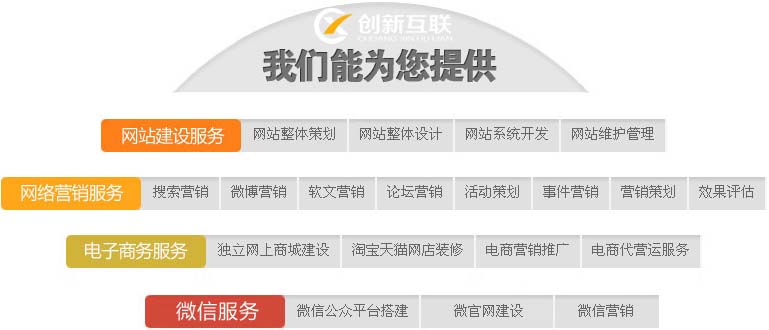如何用C#代碼實現(xiàn)快速查詢文件
這篇“如何用C#代碼實現(xiàn)快速查詢文件”文章的知識點大部分人都不太理解,所以小編給大家總結(jié)了以下內(nèi)容,內(nèi)容詳細,步驟清晰,具有一定的借鑒價值,希望大家閱讀完這篇文章能有所收獲,下面我們一起來看看這篇“如何用C#代碼實現(xiàn)快速查詢文件”文章吧。

十載的巢湖網(wǎng)站建設(shè)經(jīng)驗,針對設(shè)計、前端、開發(fā)、售后、文案、推廣等六對一服務(wù),響應(yīng)快,48小時及時工作處理。全網(wǎng)整合營銷推廣的優(yōu)勢是能夠根據(jù)用戶設(shè)備顯示端的尺寸不同,自動調(diào)整巢湖建站的顯示方式,使網(wǎng)站能夠適用不同顯示終端,在瀏覽器中調(diào)整網(wǎng)站的寬度,無論在任何一種瀏覽器上瀏覽網(wǎng)站,都能展現(xiàn)優(yōu)雅布局與設(shè)計,從而大程度地提升瀏覽體驗。創(chuàng)新互聯(lián)從事“巢湖網(wǎng)站設(shè)計”,“巢湖網(wǎng)站推廣”以來,每個客戶項目都認真落實執(zhí)行。
相信使用過Everything的人都對其超快的搜索速度印象非常深刻,它的主要原理是通過掃描NTFS磁盤的USN Journal讀取的文件列表,而不是磁盤目錄,由于USN Journal非常小,因此能實現(xiàn)快速搜索。
由于.Net程序的Dll基本上是通用的,在C#中也可以直接使用它。
public class MFTScanner
{
private static IntPtr INVALID_HANDLE_VALUE = new IntPtr(-1);
private const uint GENERIC_READ = 0x80000000;
private const int FILE_SHARE_READ = 0x1;
private const int FILE_SHARE_WRITE = 0x2;
private const int OPEN_EXISTING = 3;
private const int FILE_READ_ATTRIBUTES = 0x80;
private const int FILE_NAME_IINFORMATION = 9;
private const int FILE_FLAG_BACKUP_SEMANTICS = 0x2000000;
private const int FILE_OPEN_FOR_BACKUP_INTENT = 0x4000;
private const int FILE_OPEN_BY_FILE_ID = 0x2000;
private const int FILE_OPEN = 0x1;
private const int OBJ_CASE_INSENSITIVE = 0x40;
private const int FSCTL_ENUM_USN_DATA = 0x900b3;
[StructLayout(LayoutKind.Sequential)]
private struct MFT_ENUM_DATA
{
public long StartFileReferenceNumber;
public long LowUsn;
public long HighUsn;
}
[StructLayout(LayoutKind.Sequential)]
private struct USN_RECORD
{
public int RecordLength;
public short MajorVersion;
public short MinorVersion;
public long FileReferenceNumber;
public long ParentFileReferenceNumber;
public long Usn;
public long TimeStamp;
public int Reason;
public int SourceInfo;
public int SecurityId;
public FileAttributes FileAttributes;
public short FileNameLength;
public short FileNameOffset;
}
[StructLayout(LayoutKind.Sequential)]
private struct IO_STATUS_BLOCK
{
public int Status;
public int Information;
}
[StructLayout(LayoutKind.Sequential)]
private struct UNICODE_STRING
{
public short Length;
public short MaximumLength;
public IntPtr Buffer;
}
[StructLayout(LayoutKind.Sequential)]
private struct OBJECT_ATTRIBUTES
{
public int Length;
public IntPtr RootDirectory;
public IntPtr ObjectName;
public int Attributes;
public int SecurityDescriptor;
public int SecurityQualityOfService;
}
//// MFT_ENUM_DATA
[DllImport("kernel32.dll", ExactSpelling = true, SetLastError = true, CharSet = CharSet.Auto)]
private static extern bool DeviceIoControl(IntPtr hDevice, int dwIoControlCode, ref MFT_ENUM_DATA lpInBuffer, int nInBufferSize, IntPtr lpOutBuffer, int nOutBufferSize, ref int lpBytesReturned, IntPtr lpOverlapped);
[DllImport("kernel32.dll", SetLastError = true, CharSet = CharSet.Auto)]
private static extern IntPtr CreateFile(string lpFileName, uint dwDesiredAccess, int dwShareMode, IntPtr lpSecurityAttributes, int dwCreationDisposition, int dwFlagsAndAttributes, IntPtr hTemplateFile);
[DllImport("kernel32.dll", ExactSpelling = true, SetLastError = true, CharSet = CharSet.Auto)]
private static extern Int32 CloseHandle(IntPtr lpObject);
[DllImport("ntdll.dll", ExactSpelling = true, SetLastError = true, CharSet = CharSet.Auto)]
private static extern int NtCreateFile(ref IntPtr FileHandle, int DesiredAccess, ref OBJECT_ATTRIBUTES ObjectAttributes, ref IO_STATUS_BLOCK IoStatusBlock, int AllocationSize, int FileAttribs, int SharedAccess, int CreationDisposition, int CreateOptions, int EaBuffer,
int EaLength);
[DllImport("ntdll.dll", ExactSpelling = true, SetLastError = true, CharSet = CharSet.Auto)]
private static extern int NtQueryInformationFile(IntPtr FileHandle, ref IO_STATUS_BLOCK IoStatusBlock, IntPtr FileInformation, int Length, int FileInformationClass);
private IntPtr m_hCJ;
private IntPtr m_Buffer;
private int m_BufferSize;
private string m_DriveLetter;
private class FSNode
{
public long FRN;
public long ParentFRN;
public string FileName;
public bool IsFile;
public FSNode(long lFRN, long lParentFSN, string sFileName, bool bIsFile)
{
FRN = lFRN;
ParentFRN = lParentFSN;
FileName = sFileName;
IsFile = bIsFile;
}
}
private IntPtr OpenVolume(string szDriveLetter)
{
IntPtr hCJ = default(IntPtr);
//// volume handle
m_DriveLetter = szDriveLetter;
hCJ = CreateFile(@"\\.\" + szDriveLetter, GENERIC_READ, FILE_SHARE_READ | FILE_SHARE_WRITE, IntPtr.Zero, OPEN_EXISTING, 0, IntPtr.Zero);
return hCJ;
}
private void Cleanup()
{
if (m_hCJ != IntPtr.Zero)
{
// Close the volume handle.
CloseHandle(m_hCJ);
m_hCJ = INVALID_HANDLE_VALUE;
}
if (m_Buffer != IntPtr.Zero)
{
// Free the allocated memory
Marshal.FreeHGlobal(m_Buffer);
m_Buffer = IntPtr.Zero;
}
}
public IEnumerable<String> EnumerateFiles(string szDriveLetter)
{
try
{
var usnRecord = default(USN_RECORD);
var mft = default(MFT_ENUM_DATA);
var dwRetBytes = 0;
var cb = 0;
var dicFRNLookup = new Dictionary<long, FSNode>();
var bIsFile = false;
// This shouldn't be called more than once.
if (m_Buffer.ToInt32() != 0)
{
throw new Exception("invalid buffer");
}
// Assign buffer size
m_BufferSize = 65536;
//64KB
// Allocate a buffer to use for reading records.
m_Buffer = Marshal.AllocHGlobal(m_BufferSize);
// correct path
szDriveLetter = szDriveLetter.TrimEnd('\\');
// Open the volume handle
m_hCJ = OpenVolume(szDriveLetter);
// Check if the volume handle is valid.
if (m_hCJ == INVALID_HANDLE_VALUE)
{
string errorMsg = "Couldn't open handle to the volume.";
if (!IsAdministrator())
errorMsg += "Current user is not administrator";
throw new Exception(errorMsg);
}
mft.StartFileReferenceNumber = 0;
mft.LowUsn = 0;
mft.HighUsn = long.MaxValue;
do
{
if (DeviceIoControl(m_hCJ, FSCTL_ENUM_USN_DATA, ref mft, Marshal.SizeOf(mft), m_Buffer, m_BufferSize, ref dwRetBytes, IntPtr.Zero))
{
cb = dwRetBytes;
// Pointer to the first record
IntPtr pUsnRecord = new IntPtr(m_Buffer.ToInt32() + 8);
while ((dwRetBytes > 8))
{
// Copy pointer to USN_RECORD structure.
usnRecord = (USN_RECORD)Marshal.PtrToStructure(pUsnRecord, usnRecord.GetType());
// The filename within the USN_RECORD.
string FileName = Marshal.PtrToStringUni(new IntPtr(pUsnRecord.ToInt32() + usnRecord.FileNameOffset), usnRecord.FileNameLength / 2);
bIsFile = !usnRecord.FileAttributes.HasFlag(FileAttributes.Directory);
dicFRNLookup.Add(usnRecord.FileReferenceNumber, new FSNode(usnRecord.FileReferenceNumber, usnRecord.ParentFileReferenceNumber, FileName, bIsFile));
// Pointer to the next record in the buffer.
pUsnRecord = new IntPtr(pUsnRecord.ToInt32() + usnRecord.RecordLength);
dwRetBytes -= usnRecord.RecordLength;
}
// The first 8 bytes is always the start of the next USN.
mft.StartFileReferenceNumber = Marshal.ReadInt64(m_Buffer, 0);
}
else
{
break; // TODO: might not be correct. Was : Exit Do
}
} while (!(cb <= 8));
// Resolve all paths for Files
foreach (FSNode oFSNode in dicFRNLookup.Values.Where(o => o.IsFile))
{
string sFullPath = oFSNode.FileName;
FSNode oParentFSNode = oFSNode;
while (dicFRNLookup.TryGetValue(oParentFSNode.ParentFRN, out oParentFSNode))
{
sFullPath = string.Concat(oParentFSNode.FileName, @"\", sFullPath);
}
sFullPath = string.Concat(szDriveLetter, @"\", sFullPath);
yield return sFullPath;
}
}
finally
{
//// cleanup
Cleanup();
}
}
public static bool IsAdministrator()
{
WindowsIdentity identity = WindowsIdentity.GetCurrent();
WindowsPrincipal principal = new WindowsPrincipal(identity);
return principal.IsInRole(WindowsBuiltInRole.Administrator);
}
}本文還提供了一個擴展方法,方便我們獲取某個磁盤下的所有的文件名。
public static class DriveInfoExtension
{
public static IEnumerable<String> EnumerateFiles(this DriveInfo drive)
{
return (new MFTScanner()).EnumerateFiles(drive.Name);
}
}需要注意的是,讀取USN Journal是需要管理員權(quán)限的,因此使用這個類需要管理員權(quán)限才能正常運行。
另外,這個類封裝的也略為簡單,只讀取了文件名,實際上還可以讀取文件大小,屬性等常用信息,修改一下代碼非常容易獲取這些屬性。通過它們可以非常方便寫出一些分析磁盤空間占用的程序,這里就不舉例了。
以上就是關(guān)于“如何用C#代碼實現(xiàn)快速查詢文件”這篇文章的內(nèi)容,相信大家都有了一定的了解,希望小編分享的內(nèi)容對大家有幫助,若想了解更多相關(guān)的知識內(nèi)容,請關(guān)注創(chuàng)新互聯(lián)行業(yè)資訊頻道。
新聞標題:如何用C#代碼實現(xiàn)快速查詢文件
文章起源:http://www.chinadenli.net/article40/iehjho.html
成都網(wǎng)站建設(shè)公司_創(chuàng)新互聯(lián),為您提供定制網(wǎng)站、網(wǎng)站導航、做網(wǎng)站、ChatGPT、定制開發(fā)、網(wǎng)站建設(shè)
聲明:本網(wǎng)站發(fā)布的內(nèi)容(圖片、視頻和文字)以用戶投稿、用戶轉(zhuǎn)載內(nèi)容為主,如果涉及侵權(quán)請盡快告知,我們將會在第一時間刪除。文章觀點不代表本網(wǎng)站立場,如需處理請聯(lián)系客服。電話:028-86922220;郵箱:631063699@qq.com。內(nèi)容未經(jīng)允許不得轉(zhuǎn)載,或轉(zhuǎn)載時需注明來源: 創(chuàng)新互聯(lián)
